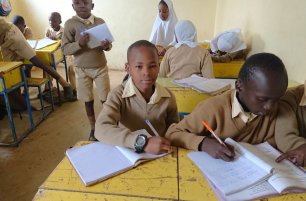Mones
Sorry, this article is only in Czech.

An Essential Element of the Elementary Montessori Student Experience
Read more
We all know the scene: a frustrated parent, a child that refuses to listen and do as they’re told, the fight that no‑one wins.
Read more
“Social and emotional learning(SEL) is the process through which children and adults understand and manage emotions, set and achieve positive goals, feel and show empathy for others, establish and maintain positive relationships, and make responsible decisions.”
Read more
We "made a trip" to Africa to ask our adopted schoolmate Abdul how he is doing.
Read more